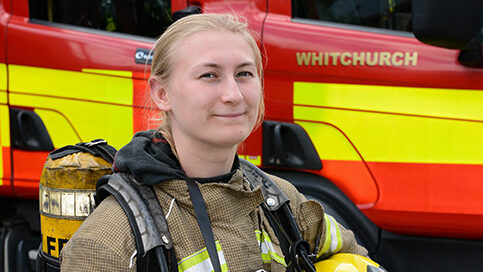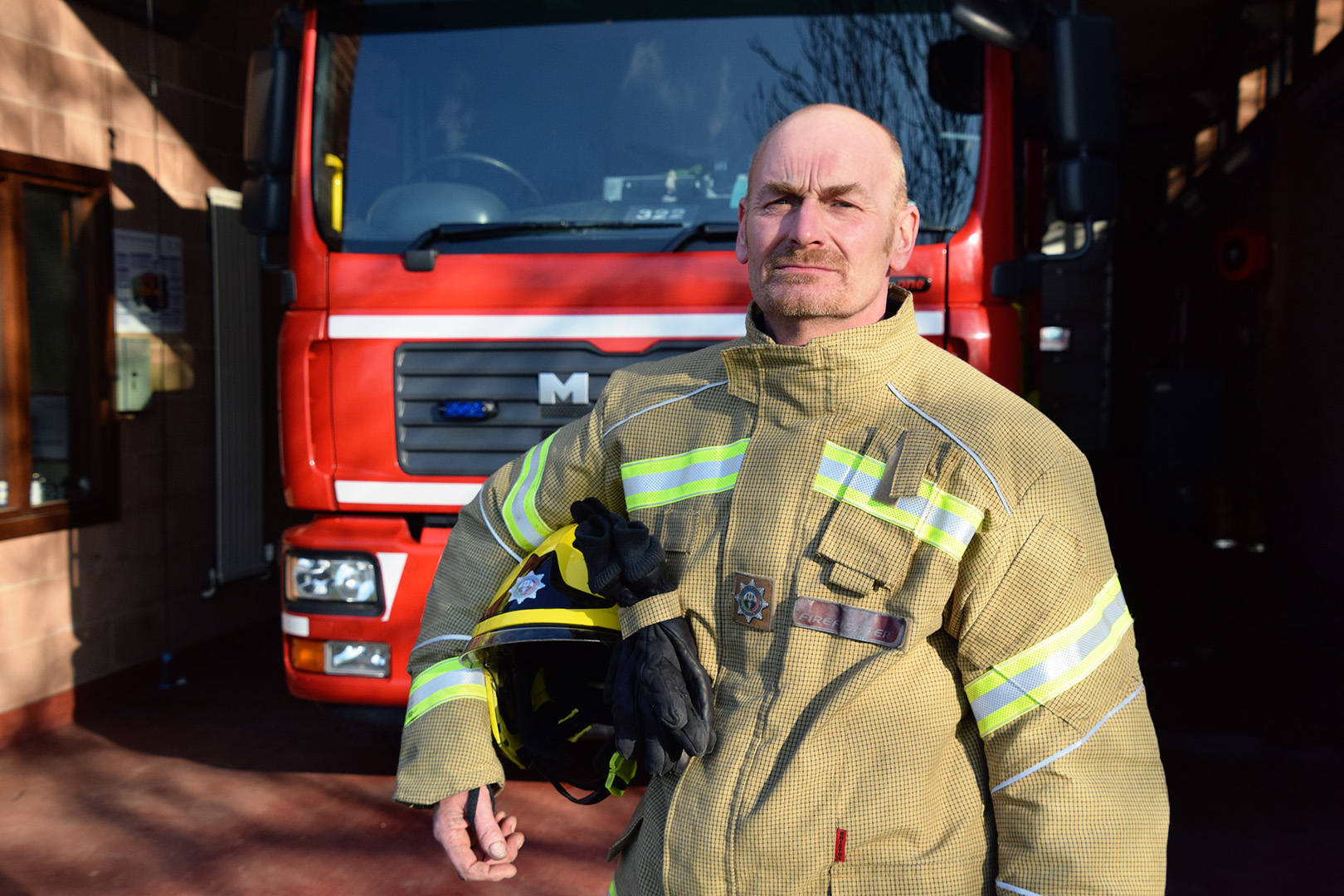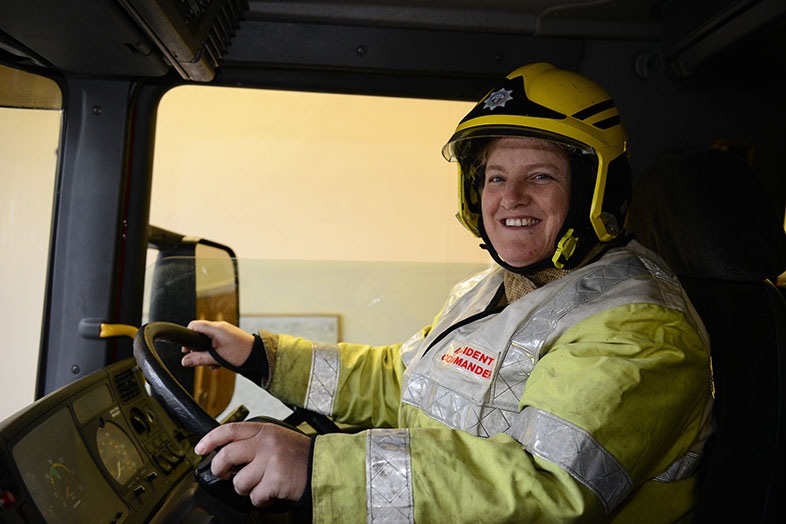Become an
On-Call firefighter
Are you over 18 and work or live within five minutes of any of our 25 fire stations?
Then we may have an exciting career opportunity for you as an On-Call firefighter where you can earn between £6,000 and £8,000 a year, sometimes more.
All our fire stations have an On-Call fire engine, which is crewed by a dedicated team of women and men who are aged 18+, who work and/or live in their local communities and respond to emergency calls whenever they are needed.
We are always looking to recruit enthusiastic applicants from all walks of life. The most important qualifications are common sense, compassion, commitment, discretion and teamwork.
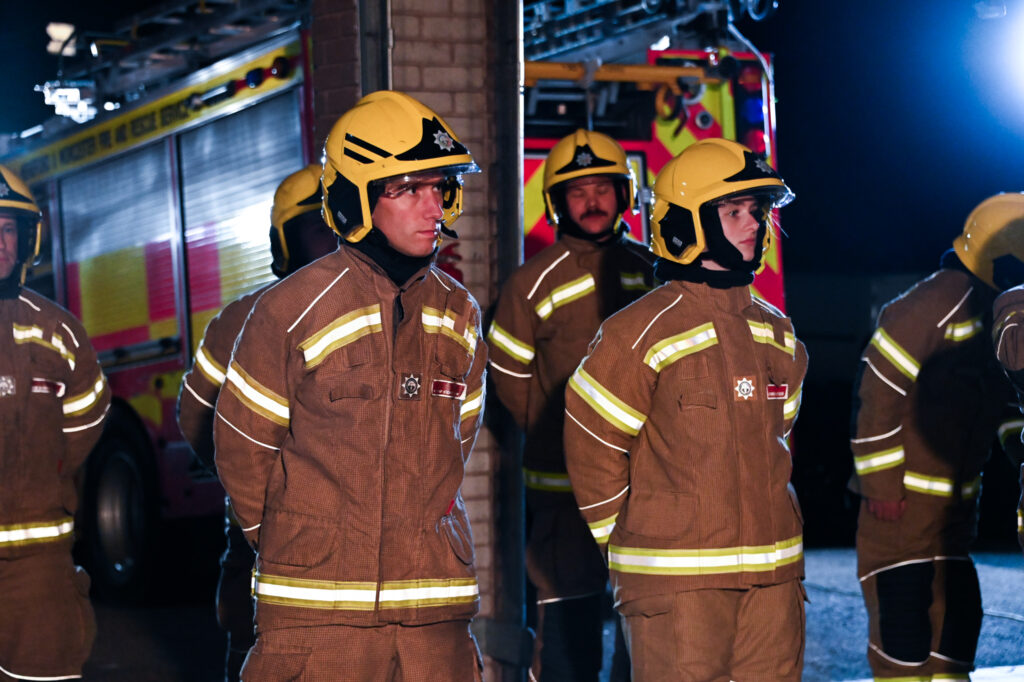
Registering your interest
If you are interested in becoming an On-Call firefighter or have any queries, please contact the On-Call Recruitment team at oncalldutysupport@hwfire.org.uk. Alternatively, fill out an Expression of Interest form at the bottom of this page.
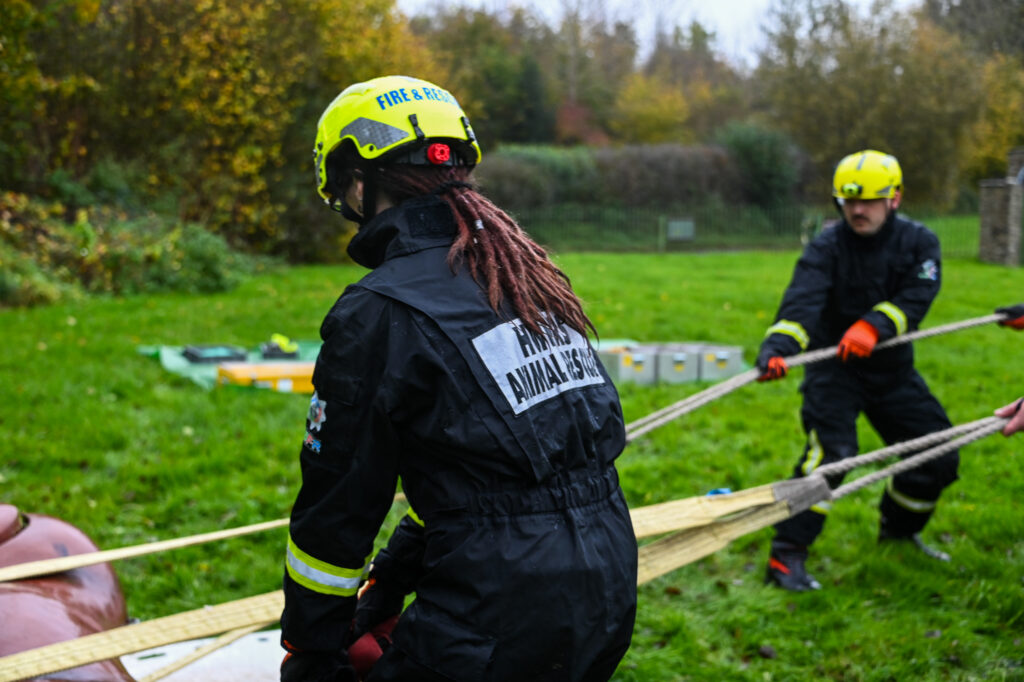
Flexible and fulfilling
We offer a range of contracts, where the number of hours and times to be available can vary to suit your personal and professional circumstances. You won’t spend all this time working; it’s just the time you’re available for us to call you if there is an incident.
Full training, uniform and personal development is provided and there are many opportunities to gain additional skills and qualifications that will be of use outside the fire service. You will also be serving your community in many challenging situations.
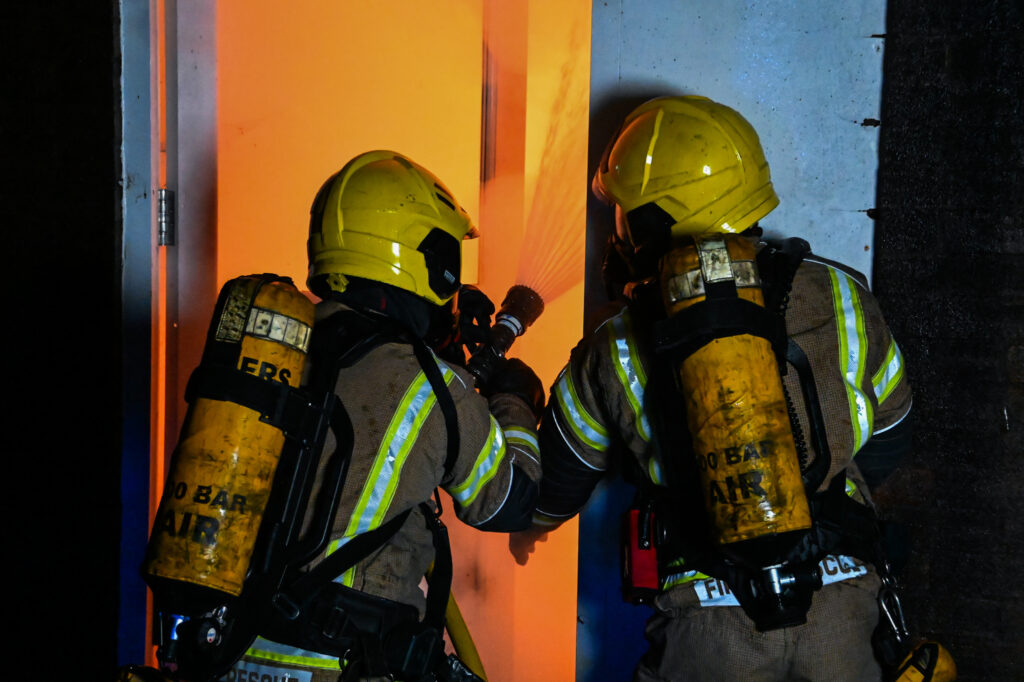
Fitness and strength
We only ask for an average level of fitness and strength and will provide full support in helping you understand and achieve what this means. You will need to attend a weekly training session, usually held on a weekday evening at your local fire station.
On-Call firefighters receive the same training and use the same equipment as wholetime crew, and combine their roles with other careers, or roles at home, providing a vital service to the community in which they live and work.
On-Call firefighter FAQs
Do On-Call firefighters get paid?
On average, an On-Call (or retained) firefighter can earn from £6,000 to £8,000 a year. We offer a range of contracts between 40 and 120 hours cover a week for which you will be paid a retaining fee. A trainee firefighter providing 120 hours cover a week would receive an annual retainer of £2,718 a year, a firefighter in development receives £2,831 and this increases to £3,623 once you become a fully qualified ‘competent’ firefighter, which takes up to three years.
In addition to this fee, you will also be paid £12.41 an hour for attending incidents and training, again which rises to £16.54 an hour when you become a competent firefighter.
How close to a fire station do I need to be?
There is no set distance, but when on call you need to be able to get to the station within five minutes from your home or place of work. When responding to the station, On-Call staff must comply with speed limits and traffic regulations, so this must be considered when assessing the time.
Do I need any formal qualifications?
No, but you will need to pass the selection tests, which include fitness, numeracy and literacy, a medical and an interview. We will offer all applicants support and guidance through all stages of the process.
How fit do I need to be?
Being a firefighter is a physical job, so it’s important to be reasonably fit and we ask for an average level of fitness that most people can reach. If you take part in sport on a regular basis or have an active lifestyle this is usually sufficient. Applicants will be provided with a fitness guide as part of the application pack to help them prepare and reach the required standard.
What training will I receive?
All trainee firefighters undergo a training programme of an initial three weeks when they start employment and then three remaining modules over an 18-month period. In the future we may be able to provide some of the three weeks initial training in a variety of flexible ways. You must also be available to attend the weekly three-hourly training sessions at your station.
What is the probationary period?
This is the period when you are in the training and development phase of your role, up to a maximum period of three years in accordance with your terms and conditions of employment. During your probationary period you will be required to demonstrate a satisfactory level of performance.
Is there a chance to be promoted?
Promotion opportunities are open to On-Call firefighters once you have qualified to be a competent firefighter. You can apply to become a crew commander and then a watch commander.
What are the working hours?
The nature of the role means we can offer flexible working arrangements to fit individual needs and commitments, such as childcare. We normally require a minimum of 40 hours on-call cover a week, although the more hours you provide (up to 120 hours per week), the more flexibility there is as to when those hours are provided. On-Call firefighters also have an annual leave entitlement. You will be expected to attend regular training sessions for three hours a week and to be available for a reasonable amount of call outs. We are particularly keen to hear from you if you can be available during daytime working hours.
Can I leave the house or my place of work when on call?
When you are on call there are no restrictions on what you do or where you go, but you must ensure you carry your pager (or ‘alerter’) and be within the five-minute response time. Of course, you cannot drink alcohol while on call or take any other substance that impairs your ability to attend incidents when required.
